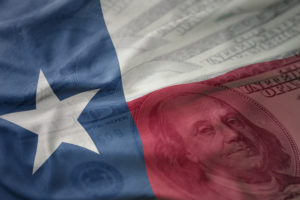In 2018, the Supreme Court of the United States (SCOTUS) overturned a longstanding ruling regarding a state’s ability to collect sales tax on purchases from out-of-state vendors. Since 1992, the Court had required that a company have a physical presence in a state in order for that state to collect sales tax on purchases from that company. With online shopping skyrocketing in the past decade, this precedent led to billions of dollars in lost revenues for state and local governments due to the inability to tax remote sellers. Some also argued that out-of-state sellers had an unfair advantage over businesses physically present in a state.
In the case of South Dakota v.s. Wayfair, Inc., 138 S.Ct. 2080 (2018), SCOTUS reconsidered the prior ruling in light of new economic developments and held that states should have the ability to tax out-of-state sellers under certain circumstances. In doing so, the court effectively replaced the physical-presence nexus standard with a new governing standard—economic nexus. However, the Court noted the following about the South Dakota tax laws at issue:
- There was a minimum threshold for business within the state (an economic nexus) that would trigger sales tax
- There were standardized and streamlined tax laws that made it easy for foreign entities to comply
In Wayfair, the court found that having a minimum economic nexus of at least $100,000 of sales within a state or 200 transactions within a state in a given tax year protects small businesses from excessive out-of-state sales tax obligations.
Following this ruling, other states quickly began passing legislation in light of the Wayfair decision. Each state set its own economic nexus threshold, which currently range from $100,000 in sales to $500,000 in sales per tax year.
Revisions to Texas Law
In response to Wayfair, the Texas Comptroller proposed changes to 34 of the Texas Administrative Code (TAC) § 3.586. With an economic nexus no longer defined by the physical-presence standard, the new law would set Texas’s economic nexus at $500,000 worth of gross receipts from sales in Texas in a tax year. This is the highest nexus threshold in the United States, with only one other state (Tennessee) setting the nexus over $250,000 thus far.
The Texas legislature also passed two laws stemming from Wayfair earlier in 2019:
- HB 2153 – Allows the State Comptroller to regulate the sales tax rate for out-of-state sales. Sales tax in Texas can range from 6.25 percent to 8.25 percent depending on the jurisdiction, and the law provides for a single rate for the entire state for foreign taxable entities.
- HB 1525 – This law regulates when marketplaces, such as Amazon or eBay, would be obligated to collect sales tax from out-of-state sellers.
Contact a Texas Tax Litigation Attorney Today
Decisions like Wayfair will have a major effect on companies conducting business online across the United States, as well as provide significant revenue to the states. At Freeman Law, our legal team assists with tax compliance and litigation, and we stay apprised of changing tax obligations under the law. Call 214-984-3410 or contact us online to speak with an experienced tax lawyer in Texas directly.
Freeman Law works with tax clients across all industries, including manufacturing, services, technology, oil and gas, financial services, and real estate. State and local tax laws and rules are complex and vary from state to state. As states confront budgetary deficits due to declining tax revenues and increased government spending, tax authorities aggressively enforce state tax laws to recapture lost revenues.
At Freeman Law, our experienced attorneys regularly guide our clients through complex state and local tax issues—issues that are frequently changing as states seek to keep pace with technology and the evolution of business. Staying ahead requires sophisticated legal counsel dedicated to understanding the complex state tax issues that confront businesses and individuals. Schedule a consultation or call (214) 984-3000 to discuss your local & state tax concerns and questions.

